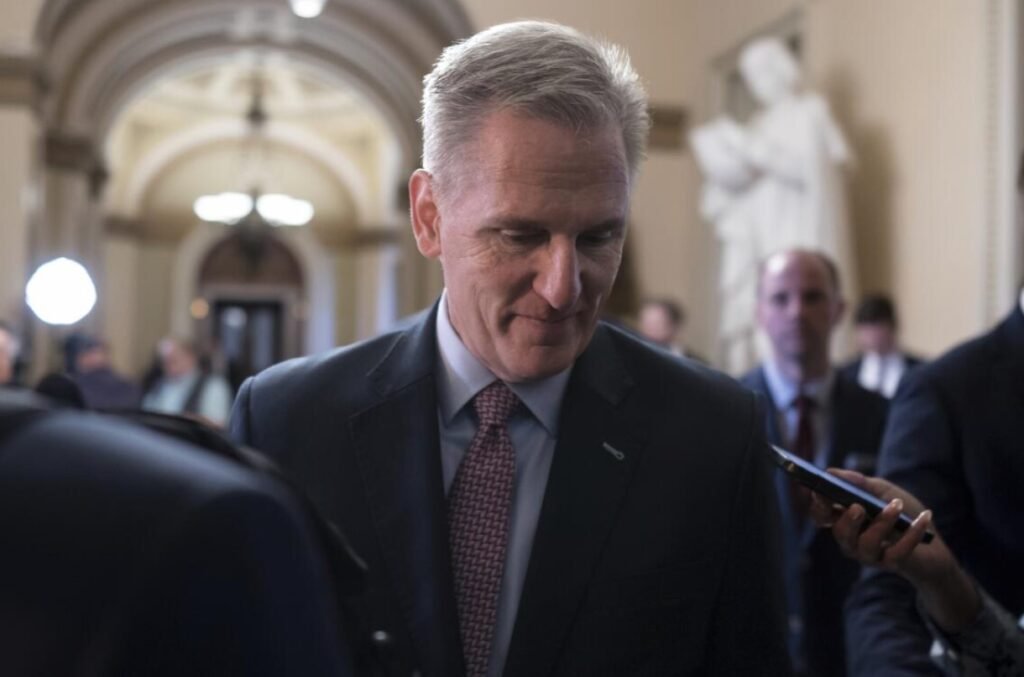The House Republicans suffered another setback on Thursday as they failed to advance a defense spending bill for the second time this week, raising the risk of a government shutdown at the end of the month.
Conservative rebels block the bill
The $826 billion defense appropriations bill, which was loaded with culture war provisions to appeal to the right-wing base, was rejected by a vote of 212-216, as five conservative rebels joined with Democrats to oppose its passage. The dissenters were Reps. Marjorie Taylor Greene of Georgia, Dan Bishop of North Carolina, Matt Rosendale of Montana, Andy Biggs and Eli Crane, both of Arizona.

The conservatives were demanding a plan from House Speaker Kevin McCarthy to make steep cuts in other areas of the federal budget, as well as to defund the ongoing investigations into former President Donald Trump and his allies. They also wanted to block any funding for vaccine mandates, mask mandates, or critical race theory.
McCarthy had tried to appease his hard-right flank by proposing a spending cut plan that would slash $125 billion from non-defense discretionary spending over 10 years. But the plan was not enough to win over the holdouts, who said they wanted to see more details and commitments from the leadership.
Shutdown looms as deadline approaches
The failure to pass the defense bill was an ominous sign for the separate effort to fund the government beyond September 30, when the current fiscal year ends. If Congress does not pass a stopgap measure or a full-year budget by then, the federal government will face a partial shutdown that could disrupt essential services and harm the economy.
McCarthy had hoped that moving forward with the defense bill would be a way to build goodwill among his caucus and pave the way for a short-term funding bill that would keep the government open. But his strategy backfired as he faced resistance from both ends of his party: the conservatives who wanted more spending cuts and the moderates who wanted more bipartisanship.
Democrats, who control the Senate and the White House, have rejected the Republican spending cut plan and insisted on a clean continuing resolution that would maintain current funding levels until December. They have also accused McCarthy of caving in to the extreme MAGA Republicans and endangering national security by blocking the defense bill.
What’s next?
McCarthy has not given up on passing the defense bill and said he would try again later. He also said he was still working on a plan to avoid a shutdown and expressed confidence that he would find a solution.
However, time is running out and options are limited. McCarthy can either try to persuade more Republicans to support his proposals or reach out to Democrats for a compromise. Either way, he will face criticism from some factions of his party and risk losing his grip on his leadership position.
Meanwhile, President Joe Biden has urged Congress to act swiftly and responsibly to fund the government and avoid a shutdown. He has also called on lawmakers to pass his $3.5 trillion social spending plan and his $1 trillion infrastructure bill, which are facing opposition from Republicans and some moderate Democrats.
